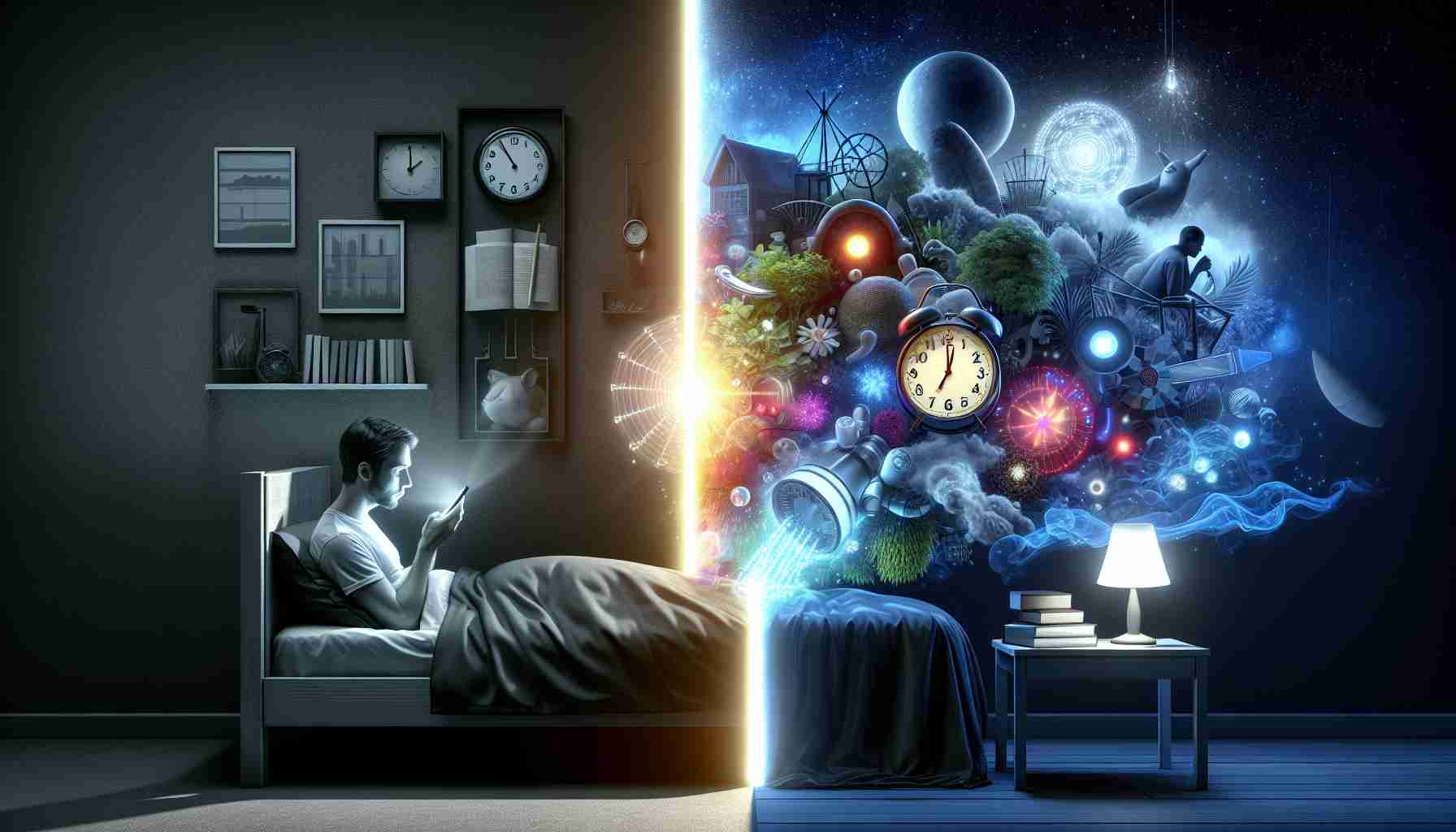Disruption of Sleep Patterns by Mobile Phones
Using mobile phones, especially before bedtime, can disrupt the body’s natural sleep-wake cycle, otherwise known as the circadian rhythm. Exposure to the blue light from phone screens can impede the production of melatonin, the sleep-inducing hormone, misleading the brain into thinking it is still daytime which can delay sleep and deteriorate sleep quality.
Decreased Sleep Duration
Frequent use of mobile devices in the evening can postpone the time of falling asleep, especially among teens and adults, which can lead to fewer hours of restorative sleep. This lack of sleep can result in negative outcomes for both physical and mental health, such as fatigue, irritability, and diminished cognitive performance.
Long-term Sleep Disorders
Overuse of mobile phones can also be a contributing factor in the development of long-term sleep disorders, including insomnia. Constant exposure to notifications and the visual and auditory stimuli from mobile devices can make it difficult for individuals to fall and stay asleep, leading to fragmented sleep and feelings of restlessness.
Effects on Mental Health
Poor sleep quality can significantly affect mental health, with those getting inadequate or non-restorative sleep being more susceptible to anxiety, depression, and stress. Such sleep deprivation can impair focus, memory, and decision-making abilities, ultimately impacting personal and professional lives.
Strategies to Enhance Sleep Quality
To mitigate the adverse effects of mobile phone use on sleep, it’s key to adopt strategies that encourage healthy sleep, including minimizing screen time before bed, establishing a healthy sleep routine, and using technology mindfully. Engaging in relaxing activities like reading, meditation, or listening to soft music can prepare the body and mind for sleep.
Creating a conducive sleep environment and maintaining consistent sleep and wake times are vital. Additionally, decreasing blue light exposure with “Night” or “Dark” mode settings on devices and using sleep tracking apps to monitor sleep patterns can be beneficial. Education, community and family support, counseling, and public policies also play a vital role in promoting healthy sleeping habits and supporting a technology-life balance.
The article on the influence of mobile phones on sleep quality outlines several key points about the impact of mobile phone use, particularly in the evening, on sleep patterns and mental health, as well as strategies for improving sleep quality. To enrich the story, let’s delve into more nuances and context about this topic.
Key Challenges or Controversies:
One major challenge regarding the influence of mobile phones on sleep is balancing the increasing demand for 24/7 connectivity with the need for restorative sleep. Some controversies also exist around the actual impact of blue light versus the psychological stimulation received from using phones, which might also affect sleep.
Additional Facts:
– A study in the Journal of Child Development found that adolescents who used their phone after lights out were more likely to report sleep-related problems.
– The use of blue light filters has been a subject of study to see if they can significantly mitigate the impact of screen time on sleep; results are mixed with some studies showing a benefit and others showing no significant impact.
– Sleep disorders have been linked to more severe health outcomes such as obesity, diabetes, and cardiovascular diseases, which suggests that the influence of mobile phone usage on sleep may also have longer-term physical health implications.
– The “Fear of Missing Out” (FOMO) is a psychological phenomenon often exacerbated by social media use on mobile phones, which can lead to anxiety and bedtime procrastination.
Advantages:
– Mobile phones can be used to enhance sleep quality through apps that promote relaxation or white noise, those that help users understand their sleep patterns, or even through guided sleep meditations.
Disadvantages:
– Mobile phones can keep the brain alert and engaged when used before bedtime, making it harder to wind down and fall asleep.
– Exposure to blue light can impact the circadian rhythm and lead to difficulties in both falling asleep and waking up feeling rested.
Strategies for Improvement:
Aside from the strategies already mentioned in the original article, additional strategies could include:
– Using phones with screens designed to emit lower levels of blue light.
– Keeping phones outside of the bedroom to reduce the temptation to use them before sleep or when waking up in the middle of the night.
– Limiting the amount of emotionally arousing content consumed before bed, such as stressful news or suspenseful movies.
To find more general information on the topic of sleep and technology, consider visiting reputable health and science websites that discuss the latest research on sleep health. A few suggestions might include the National Sleep Foundation at sleepfoundation.org, the Centers for Disease Control and Prevention at cdc.gov, or the Sleep Research Society at sleepresearchsociety.org. Just remember to always verify URLs before clicking on them to ensure their validity.
